 Donate
Donate
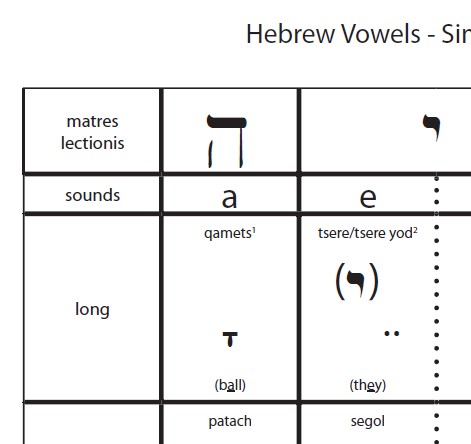
See chapter 2 of my Hebrew Video Lectures to make this chart yourself. I've found it to be one of the most useful tools for beginning reading.
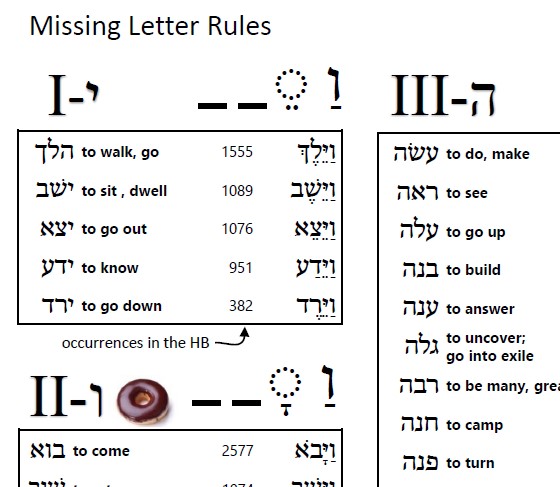
The 4 Missing Letter Rules apply when a root letter is missing (i.e. you only have 2) and the verb form has a prefix (yiqtol or wayyiqtol). What you do is look at the prefix vowel and that will tell you 1) which root letter is missing, and 2) which position it is in. There are exceptions but the rule is quite helpful.
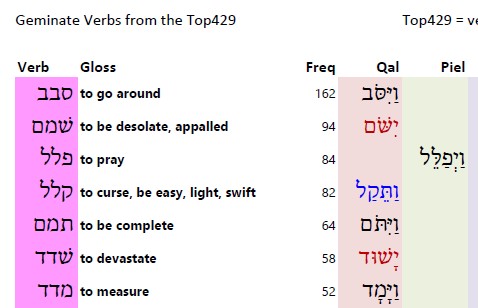
The Top429 verbs are the verbs that occur 20+ times in the Hebrew Bible.*
The charts below are grouped according to the verb type. Included in the charts are the verb root, gloss, frequency, an example (usually Qal wayyiqtol 3ms), and the categorization according to the root letter type and position.
I've sorted them to group by type rather than purely by frequency. I figured there are lots of frequency lists out there; this would be more interesting. If you want to do your own sorting and filtering, use the spreadsheet versions below.
The idea behind these charts is to highlight the most frequently used verbs and see them next to other verbs of similar type. One of the most challenging tasks beginning Hebrew learners have is decoding the weak verbs forms. One thing that really helps is simply to learn the verbs themselves! If you know the actual word/root it will be much easier to sort out the verb form.
These lists can also be useful for teachers who want some readily available examples of common verbs of a particular weak verb type.
* These charts are based on my searches using the Accordance Bible software. Other lists may differ slightly.
PDF Charts
Excel Spreadsheets (master documents)
NOTE: These spreadsheets use the SBL Hebrew font.
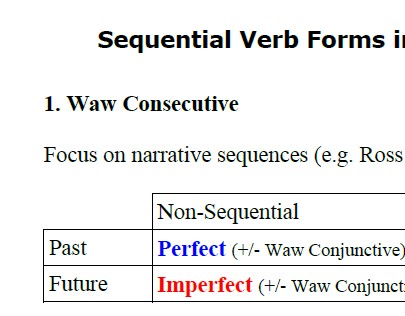
This chart outlines some of the various ways that Hebrew textbooks refer to the sequence tenses.
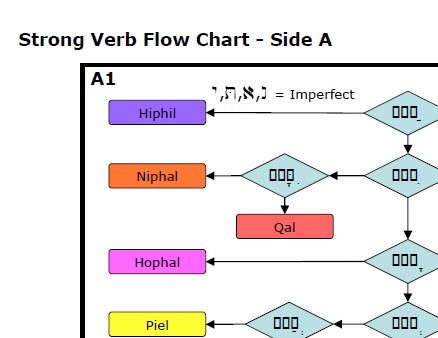
This is a flow chart to help with the parsing of strong verbs. It is based on, though not identical to, Allen Ross's Mechanical Parsing Method found in Review A of his Introducing Biblical Hebrew (Grand Rapids, Mich.: Baker Academic, 2001) p. 222-225.
These are Verb Paradigm tables using the SBL Hebrew font for printing, or copying and pasting.
These are Verb Worksheets with answer keys (includes both strong and weak verbs and principal parts).